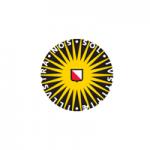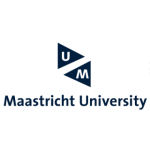项目介绍
Science communication often involves hyped, overly broad claims about research findings. What are the causes, social epistemological risks, and who’s responsible? In this PhD project, you will be researching these questions.
Your job
We are offering a fully funded four-year PhD position to a researcher interested in philosophically and experimentally investigating scientific hype, i.e., the phenomenon that occurs when scientists ‘oversell’, exaggerate, or overgeneralise findings (e.g., to untested populations) when communicating their research to other scientists or the public. This phenomenon has important implications for the social epistemology and ethics of science, as it may involve deception, corrode people’s trust in science, and contribute to failures of scientific replicability. However, scientific hype may also have yet unexplored benefits.
As part of the PhD project, you will develop methods to identify scientific hype, focusing specifically on overgeneralisations expressed in the use of generics, i.e., unquantified generalizations (e.g., ‘People with OCD benefit from CBT’). Generics suggest that a claim has a universal scope. Yet, studies show that they are often used in science communication when the reported research does not support such broad claims. You will explore to what extent generics are used in science communication across scientific disciplines, when exactly they are instances of unwarranted scientific hype, why they are used in science communication, and what the resulting epistemic and ethical costs and benefits may be.
Relatedly, while generics may communicate universal generalisations, it is unclear whether scientists take them to have a more restricted meaning than laypeople would do, thus potentially raising different epistemic and ethical risks in scientist-to-scientist compared to scientist-to-public communication. You will investigate the semantics of scientific generics and (together with other researchers) conduct psychological experiments to examine cognitive differences in the processing of generics between scientists and laypeople.
Moreover, since scientific evaluation and reward systems aim to promote the ‘relevance’ and ‘generalisability’ of research findings and generics communicate these features, generics use may inadvertently be incentivised by scientific institutions, as scientists can gain competitive advantages from using them over more accurate claims. However, the interplay between psychological and social/institutional factors in driving problematic generics use and scientific hype remains underexplored, leaving it unclear who is responsible for the harm that may result. You will examine the relevant social dynamics (e.g., through simulation and experimental studies) and help develop interventions and a normative framework to counteract problematic cases of scientific overgeneralisations.
Your qualities
To apply for this position, you need to have a Master’s degree in philosophy, or in a related field such as psychology, cognitive science, social sciences, communication studies, or linguistics.
Useful interests and/or skills for this position include:
- interest in the social epistemology of science, specifically the epistemic and ethical risks related to science communication and values in science;
- interest in philosophy of language (e.g., research on generics) and the effects of language on scientific cognition, in particular;
- interest in conducting empirical research (including experimental studies) on cognitive biases, scientific language use, and cognitive differences between laypeople and scientists;
- interest in interdisciplinary applied research that is socially and practically relevant (e.g., to improve science communication practices);
- basic statistics skills (e.g., SPSS, R, etc.) are useful to have but can also be acquired during the project.
Our offer
We offer:
- a position for 18 months, in case of good performance and a positive evaluation, the contract will be extended for the remaining period of 30 months (48 months in total);
- a working week of 38 hours and a gross monthly salary between € 2.770,- and € 3.539,- in the case of full-time employment (salary scale P under the Collective Labour Agreement for Dutch Universities (CAO NU));
- 8% holiday pay and 8.3% year-end bonus;
- a pension scheme, partially paid parental leave and flexible terms of employment based on the CAO NU.
In addition to the terms of employment external link laid down in the CAO NU, Utrecht University has a number of schemes and facilities of its own for employees. This includes schemes facilitating professional development external link, leave schemes and schemes for sports and cultural activities external link, as well as discounts on software and other IT products. We also offer access to additional employee benefits through our Terms of Employment Options Model. In this way, we encourage our employees to continue to invest in their growth. For more information, please visit Working at Utrecht University external link.
About us
A better future for everyone. This ambition motivates our scientists in executing their leading research and inspiring teaching. At Utrecht University external link, the various disciplines collaborate intensively towards major strategic themes external link. Our focus is on Dynamics of Youth, Institutions for Open Societies, Life Sciences and Pathways to Sustainability. Sharing science, shaping tomorrow external link.
The Faculty of Humanities external link has around 7,000 students and 1,100 staff members. It comprises four knowledge domains: Philosophy and Religious Studies, History and Art History, Media and Culture Studies, and Languages, Literature and Communication. With its research and education in these fields, the Faculty aims to contribute to a better understanding of the Netherlands and Europe in a rapidly changing social and cultural context. The enthusiastic and committed colleagues and the excellent amenities in the historical city centre of Utrecht, where the faculty is located external link, contribute to an inspiring working environment.
The faculty strives for diversity among its employees and students and is committed to creating a safe and inclusive environment for everyone, as can be read in Utrecht University’s Equality, Diversity and Inclusion external link policy.
The core values of the faculty for Humanities are professionalism, transparency, responsibility, connectedness and safety. These values apply to everyone and we uphold these values in our work and in our communication with each other and with others.
More information
For more information, please contact Dr. Uwe Peters at u.peters@uu.nl.
Candidates for this vacancy will be recruited by Utrecht University.
Apply now
As Utrecht University, we want to be a home external link for everyone. We value staff with diverse backgrounds, perspectives and identities, including cultural, religious or ethnic background, gender, sexual orientation, disability or age. We strive to create a safe and inclusive environment in which everyone can flourish and contribute.
We invite you to submit your application using the ‘apply now’ button. Your application should include:
- a CV;
- a brief motivation letter;
- two academic letters of reference emailed from the referee to u.peters@uu.nl;
- a writing sample (up to 4000 words, upload under the section “Master’s thesis”).
The position is expected to start on 1 November 2024.
The application deadline is 15 May 2024.
联系方式
电话: +31 (0)30 253 35 50相关项目推荐
KD博士实时收录全球顶尖院校的博士项目,总有一个项目等着你!





